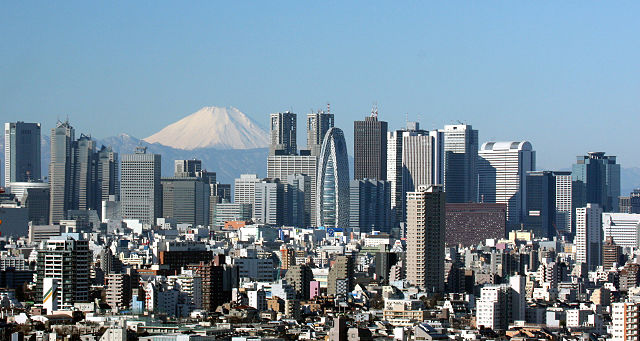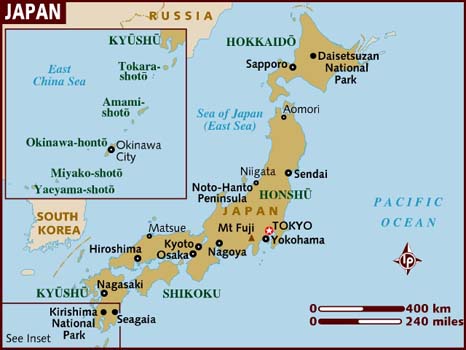Is Japan in a recession?
March 10, 2019 | Expert Insights

The Japanese government downgraded its assessment of a key indicator of economic trends, suggesting Japan may have already entered a recession rather than marking its longest growth phase since the end of World War II, as previously believed.
Background
A Recession is a business cycle contraction when there is a general slowdown in economic activity. Macroeconomic indicators such as GDP (gross domestic product), investment spending, capacity utilization, household income, business profits, and inflation fall, while bankruptcies and the unemployment rate rise. It is also defined as negative economic growth for two consecutive quarters.
Recessions generally occur when there is a widespread drop in spending (an adverse demand shock). This may be triggered by various events, such as a financial crisis, an external trade shock, an adverse supply shock or the bursting of an economic bubble. Governments usually respond to recessions by adopting expansionary macroeconomic policies, such as increasing the money supply, increasing government spending and decreasing taxation.

Analysis
Toshimitsu Motegi, minister for economic and fiscal policy, said in January that the most recent growth phase from December 2012 had likely surpassed the Izanami Boom, a 73-month streak from 2002 to 2008.
The Cabinet Office’s coincident index of business conditions for January was down 2.7 points from the previous month at 97.9 against the 2015 base of 100. It was the index’s third consecutive decline, prompting the office to say that it was “signaling a possible turning point.” Prior to that, the office had said conditions were “weakening.”
The latest assessment, based on factors such as a slowdown in industrial output amid falling exports to China, casts doubt over that assertion. The economy likely peaked in autumn, the index showed. It is not conclusive, however, as a government panel retroactively determines the length of economic cycles after examining more data, a process that can take more than a year. A weakening economy would be a headache for Prime Minister Shinzo Abe, who has counted on the success of his Abenomics policy mix to maintain public support for his Liberal Democratic Party ahead of local and national elections this year.
Gross domestic product data had shown the world’s third-largest economy bounced back in the fourth quarter of 2018 after taking a hit from natural disasters including an earthquake and typhoon. On the other hand, corporate profits saw their first quarterly fall since 2016, and improvement in the jobs market also appears to have peaked.
“The economy is at a crossroad,” said Shinichiro Kobayashi, an analyst at Mitsubishi UFJ Research and Consulting Co. “At this point, it’s an even split between continuing to improve and worsening....exports are key, and the outcome of trade talks between the United States and China will be crucial,” he said.
The top government spokesman, Chief Cabinet Secretary Yoshihide Suga, said that, at least for now, the government is upholding its claim to the longest post-war growth phase. Suga also said that the government will go through with a planned increase in consumption tax from the current 8 percent to 10 percent in October unless it faces a crisis comparable to the 2008 global financial meltdown.
The last time the index was described as signalling a turn to the downside was in 2014, after a previous consumption tax hike caused private spending to plummet. The leading index of business conditions, which predicts the trend in the coming months, deteriorated 1.3 points to 95.9 for the fifth consecutive month of decline.
Assessment
Our assessment is that the Japanese economy has the highest debt-to-GDP ratio as well as a deflationary trend since the late 1990s. We believe that the ongoing US-China trade war has mounted more stress on the Japanese economy, which has altered the economic recovery program initiated by PM Shinzo Abe.
Read more:
Image Courtesy: Morio (https://commons.wikimedia.org/wiki/File:Skyscrapers_of_Shinjuku_2009_January.jpg), „Skyscrapers of Shinjuku 2009 January“, https://creativecommons.org/licenses/by-sa/3.0/legalcode








Comments